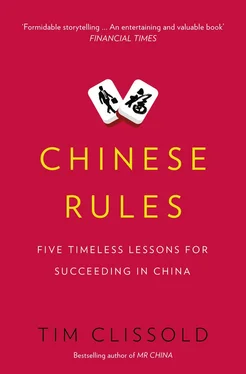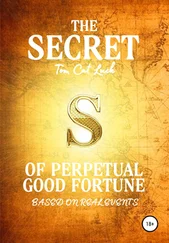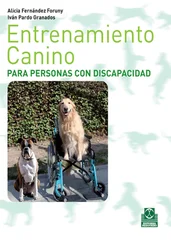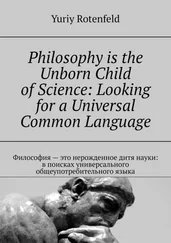‘What?’
‘You got transport organized?’ I asked. ‘The railways can be a nightmare,’ I said. ‘You know they’ve still got steam engines running out there?’
‘Not that kind of carbon!’ said the voice again, shifting markedly upward in pitch. ‘Credits! Not the black stuff!’ There was a sigh and a mumbled comment I didn’t quite catch above the clatter of the tracks.
‘Oh,’ I said. ‘Right.’
‘Let’s just back up here for a minute,’ she said. ‘We have a deal to buy carbon credits from a chemical factory in Quzhou. They make stuff used in fridges and air conditioners, right?’
‘Oh, yeah? So where does the carbon come in then?’ I continued sceptically. This really wasn’t making much sense. The connection cut out and the carriage shook violently as the train roared through a tunnel. She called me back immediately.
‘Wait! The chemical plant is chucking out greenhouse gases big-time, so we’re helping them put in new equipment, incinerators that’ll burn up the gas. That way, we get credits that we can sell on in Europe. Buyers are desperate for this stuff!’
‘Uh-huh …,’ I said, concluding that I was dealing with a nut. ‘Look, I’m sure this is all really interesting, but I’m quite tied up at the moment. Perhaps you could—’
‘No, listen,’ she interrupted. ‘This is deadly serious.’
She went on to explain that the project was the largest greenhouse gas reduction project ever attempted by private investors. ‘We just have to make this work,’ she said. ‘If we get it right, it could kick-start the whole market.’ The Chinese factory had agreed to put in equipment that burns up gases from the production line, which they’d been venting out into the air. ‘It’s really bad stuff,’ she said, ‘millions of tons of gases just blowing up into the sky and all they have to do is put in incinerators to burn it up.’
‘So why don’t they just put them in anyway then?’ I asked.
‘There’s nowhere in China that makes the equipment; they have to import it from Japan and they don’t have the cash. So we agree to buy the credits, and the factory shows the contract to the bank to get loans to buy the equipment. That’s the whole point of the CDM, right?’
‘Er … maybe,’ I said vaguely.
‘CDM. It’s part of the Kyoto Protocol for reducing greenhouse gases – Kyoto, right?’ she said doubtfully. ‘The factory puts in the equipment, burns up the gas, and the UN gives them carbon credits that we can sell on in Europe. Both sides make money, we cut down on greenhouse gases, and everybody’s happy.’
‘Sounds a bit far-fetched to me. You been doing this long, have you?’ I added suspiciously.
‘Well, yes actually,’ she said. ‘I did five years at the World Bank. We did deals all over the world … Indonesia, Nepal, India, China, Venezuela. Six months ago I moved to London and joined a carbon outfit here.’
The phone cut out again.
‘Sorry, I didn’t quite catch that,’ I said once we were reconnected.
‘Yeah, I was just saying that I joined a carbon outfit in London but at first no one else here wanted to do this deal – can you imagine it? The biggest carbon deal on the planet and they got all nervy and started asking all sorts of questions.’ Another snort. ‘Anyway, I went right out on a limb and got the Chinese to sign up to sell us the carbon. When I took the letter back to London, man, they were crazy as a snake. There wasn’t enough money in the first fund so we went out and raised a syndicate. Wang’s just called from China and wants to change the deal. The syndicate is wobbling and it looks like the whole lot’s about to go down the chute. Anyway I don’t have time for all this. Cut to the point; when can you come out to China?’
‘Er …’
‘We need to get out there as quickly as possible. I’ve got a flight booked for this evening.’
‘This evening!? But I don’t even get into London till after five …’
‘The flight’s not till eight, so you’ve got plenty of time to get across town. The guys in Beijing said you’d help us …’
‘I don’t even have my passport with me,’ I explained. ‘It’s up in Yorkshire.’
‘We’ll send a taxi to fetch it.’
‘Are you crazy? That’s a couple of hundred miles! And anyway, I don’t have any business clothes with me.’
‘Buy some at the airport.’
‘But I don’t know anything about carbon or Kyoto or any of that stuff …’
‘Read up on it on the plane,’ she said.
‘And my visa’s just expired,’ I said.
She seemed momentarily stumped.
‘We’ll get you one in the morning. I’ve got plenty of mates at the embassy. Hang on a moment …’
She put her hand over the mouthpiece and there were a few muffled comments before she came back to me.
‘Okay, we’ve got seats out tomorrow,’ she said. ‘We’re on the four o’clock flight out to Hong Kong.’
‘But …’
‘I’ll meet you in the business lounge.’
‘I …’
‘And by the way,’ she said, ‘the name’s Mina.’
2

A TREE MAY GROW TO A THOUSAND FEET, BUT THE LEAVES STILL RETURN TO THEIR ROOTS
‘Wanderers eventually return to their native soil.’
— The Story of a Marital Fate to Awaken the World, an unattributed Qing Dynasty novel
Behind the Forbidden City stands a hill, which – legend has it – hides a vast reserve of coal for use in times of siege. Each morning, just before dawn, people gather in the park below the hill for exercises. A group of women practise swordplay with their arms outstretched and blades held upright, turning on one heel. An older man shambles past with a battered canvas bag, half running, half walking, towards his usual spot among the flowerpots by the dragon-claw scholar-trees. There he fills a bucket with water, dips in a long brush, and silently practises calligraphy, writing with long, flowing brushstrokes in the dust on the paving stones at his feet. All around, hidden among the bushes, the exercisers stretch and bend and shout to greet the dawn.
I often looked out from the hill as the first rays of sunlight struck the corner watchtowers on the Forbidden City below. In the 1980s it was easy to imagine that Beijing had hardly changed since imperial times. Around the palace complex with its maze of pavilions and passageways, the sloping roofs of a thousand courtyard houses stretched out flat towards the horizon. In the late springtime, a thin layer of mist would trap the smell of fresh leaves in the damp air hanging in the alleyways. Towards the end of the summer, in the main Party compound beside the Forbidden City, lotus flowers poked through the greenery that floated about on the lakes; crooked pathways ran over little stone bridges between the pavilions along the banks. Back then, there was something about Beijing that felt simple and content; the city ran in a daily routine where everything had its own allotted place and a clear role in life. There was a pattern to the day in the old hutong alleyways, a rhythm to the hours and seasons, a closeness to nature that felt unusual in the midst of such a vast city. Up on the hill, it seemed as if the odd honk of a passing Liberation Truck was the only reminder of the turning of the centuries. But when I looked more closely through the haze towards the west, I could pick out the vague and distant outline of factories standing out against the mountainsides. Smokestacks and towers of twisted pipework rose up at the foot of the hills. A trail of smoke drifted from an iron foundry. In the other direction, heaps of coal and ash marked the site of the city’s main power station and electrical towers marched off in straight lines towards the south. These were all the early signs of modernization and in those days, I never gave it a thought. But if you were to go back to that hill and look out over the great city today, you would find a very different sight.
Читать дальше













